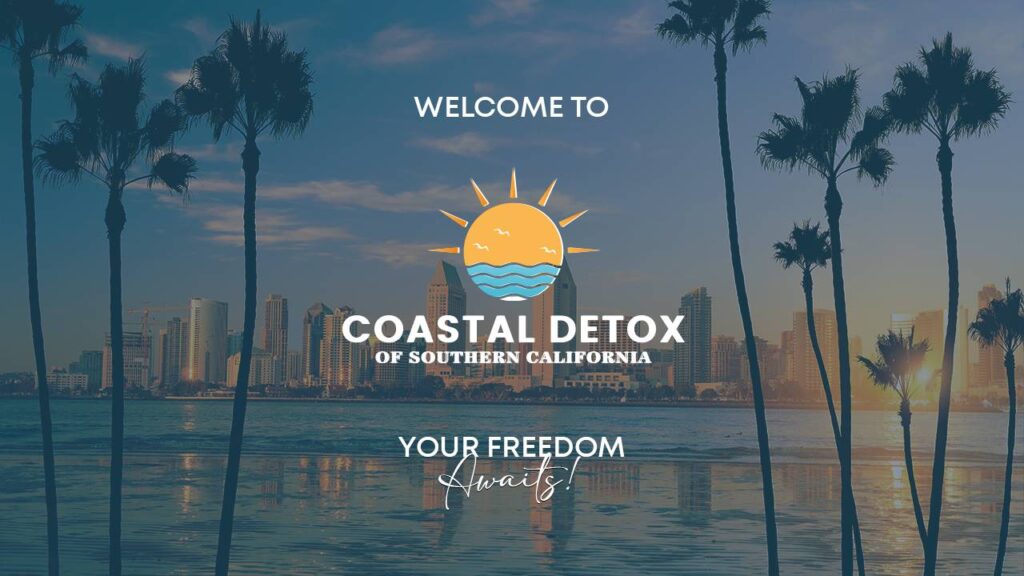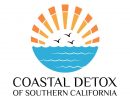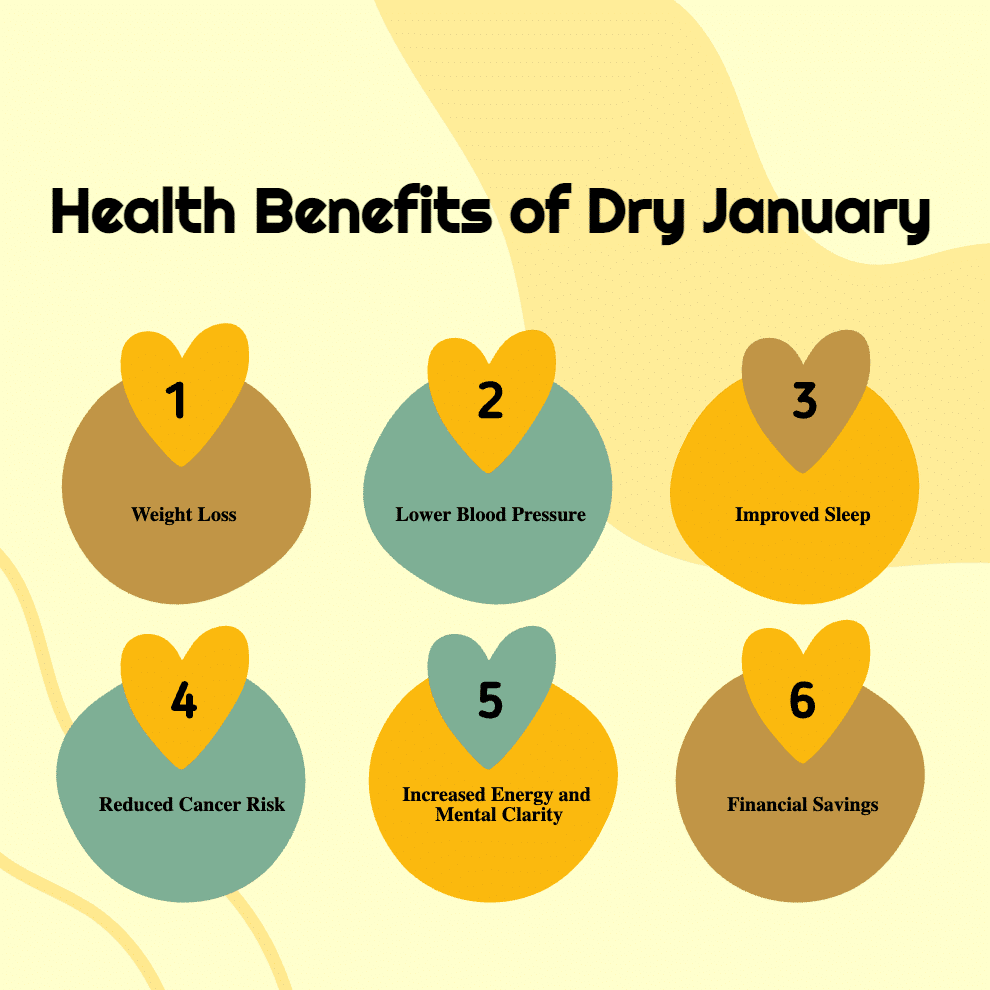The start of a new year often inspires health-conscious resolutions, and Dry January is one of the most popular challenges. This global movement encourages participants to abstain from alcohol for 31 days, providing an opportunity to reset after indulgent holiday celebrations. But what are the real benefits of going alcohol-free for a month? Let’s explore the Dry January health benefits, helping participants re-evaluate their drinking habits and embrace a healthier lifestyle.
What Is Dry January?
Dry January began as a public health initiative by Alcohol Change UK in 2013 and has since gained global popularity. The goal is simple: give up alcohol for 31 days. For many, this challenge is a chance to reassess their relationship with alcohol consumption while promoting healthier habits.
Dry January participants often find that the challenge helps them understand their triggers for drinking and how alcohol use affects their daily lives. This reflection can lead to more mindful choices about when and how to drink in the future.
Short-Term Dry January Health Benefits
Even a brief break from alcohol can yield significant improvements in your well-being. Here are some of the short-term benefits:
1. Better Sleep
Alcohol might initially make you feel drowsy, but it disrupts the deeper stages of sleep your body needs to restore itself. Without alcohol, you may experience fewer nighttime awakenings and wake up feeling more refreshed and energized. Improved sleep quality is often one of the first benefits Dry January participants notice.
2. Improved Mood and Reduced Stress
Alcohol increases cortisol, the body’s stress hormone, which can lead to heightened anxiety or irritability. Cutting back allows your body to regulate stress more effectively, improving overall emotional well-being. This contributes to better mental health and a clearer mind.
3. Weight Loss and Healthier Eating Habits
Alcohol contains empty calories with no nutritional value. Eliminating it for a month often reduces calorie intake, helping with weight loss. Many participants also find they make healthier food choices when they aren’t drinking, avoiding the late-night cravings alcohol often induces.
4. Better Liver Health
Your liver works hard to process alcohol, often leading to inflammation and fat buildup. Taking a break allows the liver to recover and regenerate, improving its overall function in just 30 days. This also reduces the risk of liver disease over time.
5. Lower Blood Pressure
Regular alcohol consumption can contribute to high blood pressure. By cutting it out, you may see a noticeable improvement in cardiovascular health, including a reduction in high blood pressure levels.
Long-Term Health Benefits of Reduced or No Alcohol
Beyond the immediate benefits, Dry January can serve as a stepping stone to lasting improvements in your health. Long-term abstinence or moderation can lead to:
- Reduced Cancer Risk: Alcohol is linked to several types of cancer, including breast, liver, and colorectal cancers. Drinking less decreases these risks significantly.
- Stronger Immune System: Alcohol suppresses immune function, making you more susceptible to illness. Eliminating it helps your body better fight infections.
- Improved Gut Health: Heavy drinking disrupts the balance of gut bacteria, leading to digestive issues. A break from alcohol helps restore a healthy gut microbiome.
- Lower Risk of Chronic Diseases: Abstaining from alcohol reduces the likelihood of developing conditions like heart disease and diabetes.
Is Dry January Right for You?
Before embarking on Dry January, it’s important to assess your current relationship with alcohol. For occasional drinkers, stopping cold turkey is generally safe. However, heavy drinkers or those with a history of alcohol dependence should consult a medical professional, as withdrawal symptoms can be severe and even life-threatening.
Signs of alcohol withdrawal include anxiety, irritability, shakiness, and difficulty sleeping. If these symptoms occur, seek professional support to ensure a safe and gradual reduction. If you’re looking to make lasting changes, exploring alcohol rehab in San Diego could be a valuable next step. Consulting with an addiction psychiatrist can also provide tailored guidance.
Tips for Success During Dry January
While the idea of 31 alcohol-free days might feel daunting, the following tips can help you stay on track:
1. Set Clear Goals
Define why you’re participating in Dry January. Whether it’s to improve your health, save money, or simply try something new, having a purpose will keep you motivated.
2. Seek Support
Tell your friends and family about your plan. Better yet, invite them to join you! Accountability can make the challenge easier and more enjoyable.
3. Stock Up on Alternatives
Non-alcoholic drinks like mocktails, sparkling water, or herbal teas can satisfy cravings and help you feel included in social settings.
4. Plan for Social Situations
Anticipate situations where you might feel pressured to drink. Practice polite ways to decline and have a fun alternative drink on hand.
5. Focus on Wellness
Use the energy and clarity gained from cutting out alcohol to start new habits like exercising, cooking healthy meals, or picking up a hobby.
6. Track Your Progress
Notice and document the changes in your mood, energy, and sleep. Celebrating these wins will help maintain your momentum.
What Happens After January?
Completing Dry January is an accomplishment, but what comes next? Use this time to reflect on how the experience made you feel. Did you notice improvements in your health, mood, or energy? Did it change how you view your relationship with alcohol?
To maintain the benefits, consider adopting a mindful drinking approach. This could mean drinking less frequently, setting limits, or choosing alcohol-free days each week. Avoid the temptation to overindulge in February by planning for a sustainable balance.
Expert Insights on Dry January
Experts agree that reducing alcohol use has undeniable health benefits. However, some caution against treating Dry January as a one-time fix. For the best results, consider it a starting point for a healthier long-term relationship with alcohol.
Participating in Dry January isn’t about perfection—it’s about progress. Whether you’re looking to improve your health or simply curious about the effects of going alcohol-free, this challenge is an excellent opportunity to reset and recharge.
Dry January offers a wealth of physical and mental health benefits, from better sleep and weight loss to improved mood and liver function. It’s also a chance to reflect on your habits and make informed decisions about your relationship with alcohol.
Why not give it a try? Whether you’re interested in taking the first step toward sobriety with Coastal Detox of Southern California or just curious about the benefits of a month without alcohol, your body and mind will thank you.









